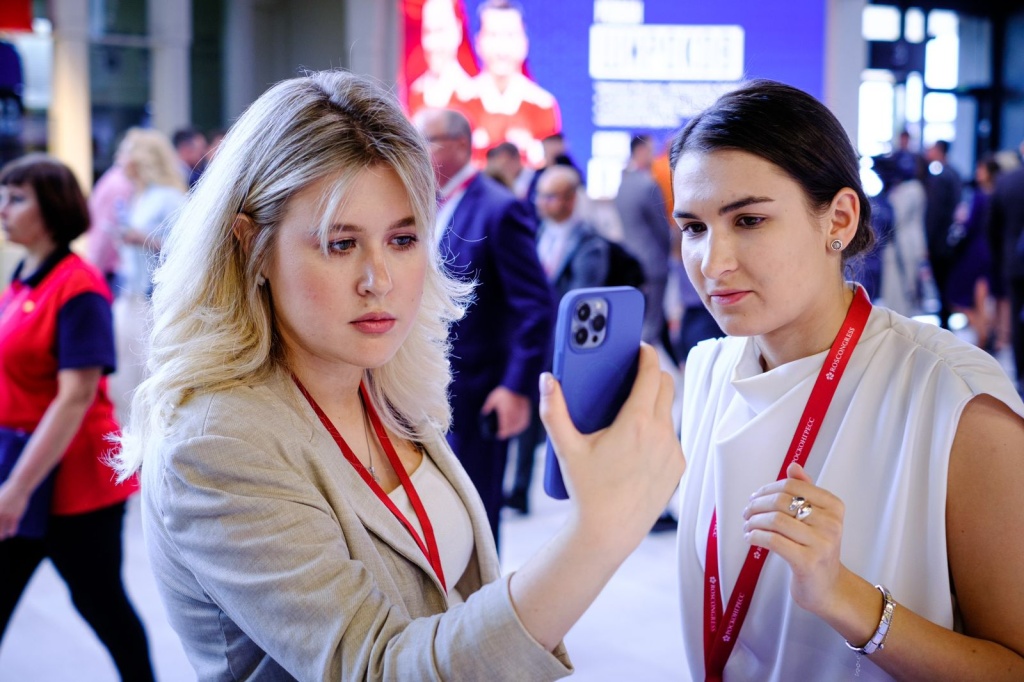
Creating Innovative Medicines and New Horizons in Healthcare
KEY CONCLUSIONS
Innovations increase treatment effect
“Combining fundamental breakthrough discoveries with new technologies would allow us to move on to creating medicines that can cure diseases that are incurable today,” Veronika Skvortsova, Minister of Health of the Russian Federation.
“We are talking about innovative medicines, advanced therapy medicines. Innovation is the new thing that increases the efficiency of processes and provides for what the market wants. In this case, this means treating patients with severe diseases, possibly those that are incurable today,” Vadim Merkulov, Deputy Director General for Drug Expertise, Scientific Centre for Expert Evaluation of Medicinal Products of the Ministry of Health of the Russian Federation.
Demand for innovation is shaping up in Russia
“We have seen the situation change over the past few years. That is, in part, due to the fact that the government agencies have started treating the scientific development and its practical implementation with great attention and interest,” Sergei Lukyanov, Rector, Pirogov Russian National Research Medical University.
“We see large innovative potential in Russia. <...> We are all headed the same way, basically: towards the technologies of the future to benefit our patients,” Max Wegner, Senior Vice President, Head of Regulatory Affairs, Pharmaceuticals Division, Bayer AG.
PROBLEMS
Insufficient funding
“The problematic issue is funding, of course. <...> We now have eight more products in our portfolio, but, unfortunately, those developments are on hold due to the lack of funding,” Alexey Belyaev, Director, National Medical Research Center of Oncology named after N.N. Petrov of the Ministry of Health of the Russian Federation.
“Everybody needs financing. Everybody needs support. It is also important to have licensed laboratories,” Alexey Martynov, President, Association of Biomedical Cellular Products Manufacturers.
“From the standpoint of finance, we lack funds. If, for example, we were spending today as much as the new EU countries do, that is 0.6% of GDP, we would need additional 350 billion roubles. With that money, we would have two positive aspects: saving people’s lives and health, as well as building the potential for businesses to invest in the development of innovative medicines,” Guzel Ulumbekova, Head, Higher School of Healthcare Organization and Management.
Investment in innovation bears high risk
“How can we drive businesses into the area where there is no final product?” Possibly, through public-private funding,” Gennady Suhih, Director, National Medical Research Center for Obstetrics, Gynecology and Perinatology named after Academician V.I. Kulakov of the Ministry of Health of the Russian Federation.
“Entering this niche is quite risky. Therefore, it is necessary to create the production structure and develop a cellular product at the same time. Because there are no production structures yet, we cannot even build up an experimental batch for clinical studies,” Andrey Vasiliev, Director, Koltzov Institute of Developmental Biology of Russian Academy of Sciences.
“It would be sad to see our companies suddenly bought out by big pharma. When that happens, the innovative component decreases sharply, and companies become just a production source,” Sergei Lukyanov, Rector, Pirogov Russian National Research Medical University.
Some producers neglect safety for the sake of profits
“We are concerned, first of all, by monetization that comes before effectiveness and safety of technological solutions and products. Some companies and organizations attempt to mislead the patient and thereby deprive them of real hope,” Mikhail Murashko, Head, Federal Service on Surveillance in Healthcare (Roszdravnadzor).
“We see that even in our city there are companies that use various innovative technologies without any registration,” Alexey Martynov, President, Association of Biomedical Cellular Products Manufacturers.
SOLUTIONS
Systematic support for innovation
“In 2016, the Ministry of Health of the Russian Federation established a cluster for direct innovative development by creating a special federal centre – the Centre for Strategic Development, which collects and analyses information, compiles databases of competent specialists in each of our country’s 85 regions and across all sectors. The development of this cluster allowed us to move on to new organizational mechanisms,” Veronika Skvortsova, Minister of Health of the Russian Federation.
“The ‘Pharma 2030’ programme includes the most modern aspects: vaccines, biomedical cell products, gene therapy drugs, medical industry. <...> This is one of the most promising programmes. Both the sector and the businesses are waiting for it and fully support it,” Alexey Martynov, President, Association of Biomedical Cellular Products Manufacturers.
“Basically, today we have agreed that starting next year we will have a unified tool for financing drug research projects, which will allow us to give such subsidies upfront, so that we could pay advances to companies. <...> Together with RVC we are creating a venture capital fund to finance early development, risky development and long-term development. <...> We could consider financing part of the projects at early stages through venture capital instruments,” Sergey Tsyb, First Deputy Minister of Industry and Trade of the Russian Federation.
“If our smallest companies which are at pre-clinical research stages, at the early phases, somehow get the support from industrial companies, through acquisitions too, that would create more incentive to turn the inventions of our scientists into medicines,” Alexey Repik, President, Delovaya Rossiya (Business Russia); Chairman of the Board, Group R-Pharm.
“We are a big country; our logistics is complicated. We are talking about 5,000 patients. How do we build a centralized cell treatment centre for the patients? We need to understand that the fastest way is to help businesses that already have patients. Our government centres must help businesses to create such technologies. That is the only path towards practical implementation,” Dmitry Morozov, General Director, BIOCAD.
Improving the legal framework and reducing administrative barriers
“The federal law number 180 provides for the production of autologous biomedical cellular products, that is, products derived from a person’s own cells and intended for use by this person. At the same time, the state registration process is structured so that we get a typical product that can be applied to each individual,” Igor Korobko, Director of the Department of Science, Innovative Development and Management of Biomedical Health Risk at the Ministry of Health of the Russian Federation.
“Possibly, the quality of life and demography could be divided into segments: where is industrial licensing, where is tuning?” Dmitry Kudlay, General Director, Generium.
“In order to ensure early patient access to such innovative treatment with safety and efficacy regulators are required to evaluate them in a timely manner. <...> Overcoming barriers and obstacles in this area requires the participation of certain government agencies and departments,” Yoshikazu Hayashi, Senior Executive Director, Pharmaceuticals and Medical Devices Agency.
Integration of education and science
“In order to train personnel, we need good facilities and equipment. That is why we have created the Scientific and Technological Biomedicine Park, which includes the Institute of Molecular Medicine, Regenerative Medicine, the Institute of Translational Medicine, the Institute of Personalized Medicine, and so on. <...> Universities must be involved in the development of innovative drugs,” Petr Glybochko, Rector, I.M. Sechenov First Moscow State Medical University of the Ministry of Health of the Russian Federation.
For more information, visit the Roscongress Foundation's Information and Analytical System at roscongress.org/en








